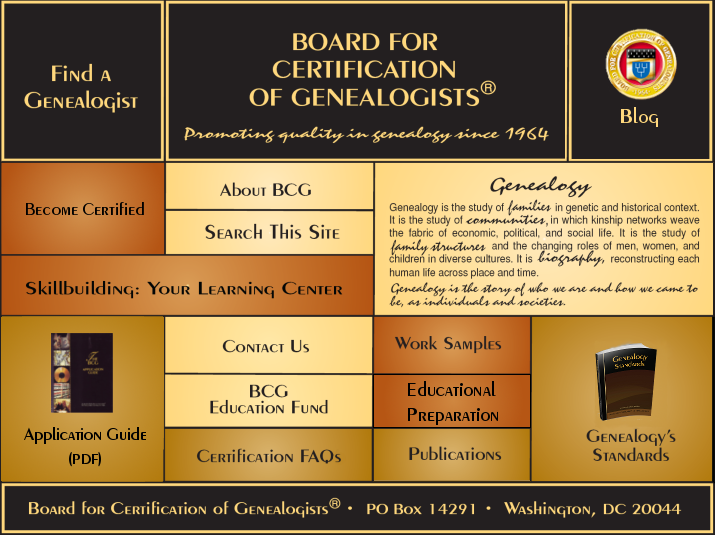14 November 2014
Academic historians and family historians till the same soil. Yet, all too often, they work in separate worlds with little exposure to or discussions about the standards of each discipline. As a consequence, even the best academic journals publish genealogical assertions—typically, convenient ones found online—that carry no credibility in the discipline of genealogy.
For academics uncertain of the standards by which genealogical work should be judged, here's a quick tutorial:
No genealogical conclusion, or assertion about kinship or identity, is credible unless it meets the 5 criteria of the the Genealogical Proof Standard:
- Reasonably exhaustive research, using the best surviving sources;
- Careful documentation of the source of each individual assertion;
- Skilled analysis and correlation of the evidence;
- Resolution of any conflicting evidence; and
- A soundly reasoned and cogently explained conclusion.
The Board for Certification of Genealogists (founded 1964) offers much additional help in the evaluation of genealogical research. Not only the Genealogical Proof Standard but also the 83 research, analysis, and reporting standards that underpin the GPS, are well explained in its little handbook, Genealogy Standards.1 Its website offers other guidance for best practices and work samples that demonstrate reliable genealogical work.
1. Genealogy Standards, 50th Anniversary Edition (Nashville and New York: Ancestry Imprint, Turner Publishing Co., 2014).